Impeccability of justice system is one of the prime precedences of any country or state, but possibility of wrongful convictions remain there. Though, no criminal justice system is ideal and fully perfect even all the norms are upheld. And occasionally some powerful personalities also suffer from these justice infirmities.
There are bunch of innocent people who were wrongly convicted all across the world. Until now, you've heard about the leaders who used their power in ridiculous ways and they were not punished but this list highlights especially top ten powerful politicians who were penalized even they did not significantly commit those crime.
10-Leschi (Native American leader):
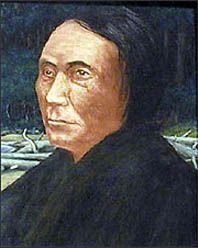
Nisqually leader and chief, Leschi was the first governor of Washington territory. In 1855, Leschi flew out to the regional capital at Olympia to challenge treaty terms. Around then, he progressed toward becoming war chief in command of around 300 men and drove few assaults which froze the white populace. Right on time in the contention, Territorial militiamen Abram Benton Moses and Joseph Miles (or Miller) were killed. Infuriated territorial experts faulted the killings for Leschi, who remained everywhere for about a year. Convinced that white pilgrims were cooperating with Leschi, Stevens pronounced military law over Pierce County on April 2, 1856.
Leschi was arrested at the beginning of November 1856. His first trial brought about a hung jury as a result of the judge's instruction that killing of combatants during wartime did not constitute murder. The second trial started on March 18, 1857, in which this direction was not given and his legal advisors, Frank Clark and William Wallace, were not permitted to present possibly excusing proof. On June 10, 1857 he was declared as murderer and hanged on February 19, 1858. The hangman was accounted for to have later said "I felt, I was hanging an innocent man, and I believe it yet".
On march 4, 2004, the Washington state senate and later the present and former judges of the state Supreme court absolved the Chief Leschi of the charges of murder.
9- Anandyn Amar:
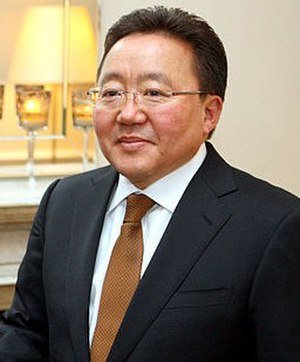
Head of state of the Mongolian People’s Republic from 1932 to 1936, Anandyn Amar ruled as prime minister twice. A widely regarded politician, Amar was known for his expressive defense of Mongolian independence notwithstanding increasing Soviet domination. He was selected as prime minister on February 21, 1928, after the passing of Balingiin Tserendorj. The Soviets, effectively suspicious of the notoriety he delighted in Mongolia, abridged his power by quickly allocating him to work in the Institute of Manuscripts. Amar's first term as prime minister finished on April 27, 1930.
The second term as prime minister started on March 22, 1936 following Peljidiin Genden's removal from both offices. In view of Amar's proceeded with prominence among Mongolians, Stalin was anxious to dispose of him. He advised Choibalsan to host gathering pioneer Dorjjavyn Luvsansharav dispatch a promulgation battle against the prominent prime minister.
In Moscow, Amar was tormented into making a full confession to the greater part of the allegations made against him. Incidentally, while anticipating the trial in Moscow Amar was imprisoned with Luvsansharav, the same person who had captured him and who had additionally succumbed to Choibalsan's cleanses presently.
On July 10, 1941, Amar was attempted by a Soviet troika, forced to admit his guilt and sentenced to death and executed at the firing ground "Kommunarka". Almost fifteen years later, on December 15, 1956, in the wake of inspecting Stalin's cleanses, military collegium found no evidence of Amar's guilt. On January 25, 1962, he was restored, and on September 26, 1989, his participation in the MPRP reestablished.
8- Zulfiqar Ali Bhutto:
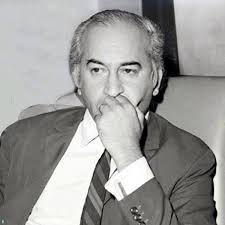
The second most successful and famous Politician after Jinnah, Zulfiqar Ali Bhutto was a Pakistani legislator who served as Prime Minister of Pakistan from 1973 to 1977 and as the fourth president from 1971 to 1973. He was the founder of Pakistan People's Party (PPP) and was known as Quid-e-Awan (People's leader).In the first general elections that were held in 1970, Ahmad Raza Kasuri was elected as the member of National Assembly (MNA). It was a great debate in those days that Bhutto doesn't like Ahmad Raza Kasuri because of differences in supposition and opinion inside the same party. At one night when Ahmad Raza Kasuri with his parents, was returning to home after attending a marriage ceremony, the Federal Security Force (FSF) fired on his family and his father Nawab Muhammad Khan Kasuri died at the spot.
It was sentenced that Bhutto ordered the FSF to shoot Kasuri as indicated by Masood Mahmood who was leading the FSF at that time. Kasuri also claimed that he was the real target.
Later, Bhutto was declared not liable of murder on March 18, 1978, but rather Supreme Court concluded that the President of Pakistan can change a death sentence to life imprisonment.But the President Zia-Ul Haq rejected his appeal. On April 4, 1979, the day Bhutto was executed and the whole Muslim world was shocked. After his execution, the majority of the judges on frequent occasions said that Bhutto was innocent however it was useless to cry over spilled milk.
7- Bogdan Filov:
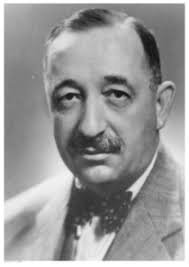
A man of class who made Bulgaria the seventh nation to join the Axis Power, Bogdan Filov was a Bulgarian archaeologist and great politician. During the world war II, he was the prime minister of Kingdom of Bulgaria. During his reign, Bulgaria was declared the southern part of Dobruja. In November 1940, the Filov government presented the Law for protection of the nation; Parliament voted its endorsement on December 24, 1940.
Following the peace negotiation with the Soviet Union whose powers had entered Bulgaria in 1944, another Communist-commanded government was built up and the Regency Council individuals were captured. Filov and ninety-two other open authorities were condemned to death by a "People's Tribunal" on the evening of 1 February 1945 and executed by terminating squad that night in Sofia burial ground. Later, many analysts and authors highlighted the fact that Bogdan Filov had undoubtedly been a leading and solid archaeologist and that was not the reason of his trial and execution. In Khaitov’s credo who was a unabashed nationalist wrote on Filov, “The great bulgarian scholar executed by people’s court”. Nonetheless, the Supreme court later repudiated the sentences issued by people trabunal in August 1996.
6-Abu Taher:
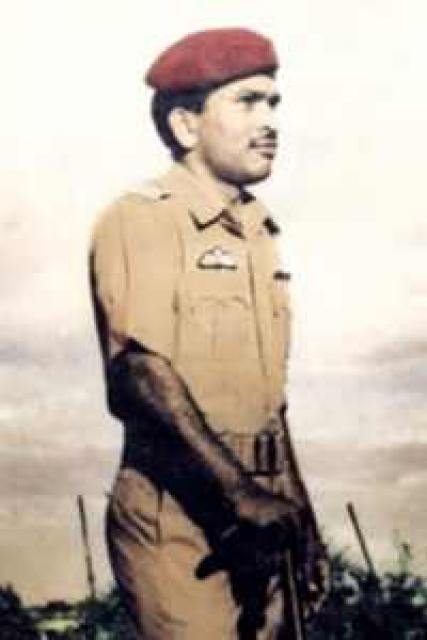
A military serviceman, Abu Taher was a Bangladeshi political legislator. Before 1971 separation from East Pakistan (Now Pakistan), he received his commision as second lieutenant in 1962 by Pakistan Army. He also took part as a commando officer of Pakistan special elite force in 1965 Indo-Pak war. He was awarded with the war participation medal from the Pakistan Army for his services in 1965 war.
After the East and West Pakistan separation, Ziaur Rahman retook charge of the armed force. He understood that the turmoil set off by the troopers' uprising on the motivation of Taher must be suppressed solidly if discipline somehow managed to be restored. On 24 November 1975 Taher was arrested on charges of high treachery and murder. Taher was attempted by a military court inside the Dhaka Central Jail and condemned to death on 17 July 1976. He was hanged on July 21, 1976. The trial was later viewed as imperfect.
On March 22, 2011, the politically disposed High Court toppled the past judgment that approved Taher's execution by a military council while the country was under military law. The military court judgment was pronounced unlawful and illegal. The court investigated the fact that Taher's execution had occurred by Major General Zia's arrangement.
5-Nikola Dimitrov Petkov:
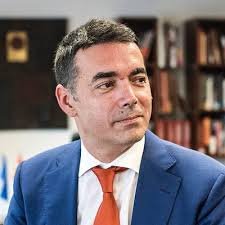
Unfortunately here we also have another Bulgarian political activist, Nikola Dimitrov who suffered from the unfair trial and executed eventually. He also served as the prominent leader of the Bulgarian Agrarian National Union (BANU). He started his political career in 1930. After the overthrow of 19 May 1934, Petkov participated with vote based gatherings including the Labors' Party – the legitimate association of the restricted Bulgarian Communist Party. He was chosen to the 24th National Assembly. Because of his anti-fascist nature, his decision as an individual from the parliament was refuted in December 1938 and Nikola Petkov was interned in Ivailovgrad (a town in Haskovo Province in the very south-east of Bulgaria).
From September 9, 1944 to August 26, 1945, he was a minister without portfolio in the main administration of the Fatherland Front Bulgaria. From January 1945 he turned into a pioneer of the counter socialist United opposition. His battle to protect parliamentary vote based system was seen by the communists as a type of counter-progressive action. His parliamentary insusceptibility was lifted on 5 June 1947 and he was arrested in the Parliament building itself; associates who endeavored to keep the capture were whipped. After a grotesque trial in which the defense had contradicted the rights to the legitimate portrayal or to exhibit confirm, he was discovered blameworthy of secret activities and condemned to death on 16 August that year. In spite of the fact that he dissented his honesty amid his organized gathering trial with 4 other 'co-schemers,' and notwithstanding the challenges of Western countries, Nikola Petkov was hanged on 23 September 1947 and covered in an obscure grave. The Bulgarian mystery police orchestrated a false confession to be openly printed after Petkov's passing, however, it was so clearly faked that the move rapidly turned into a shame and stopped to be specified by the experts.
4-Patrice Émery Lumumba:

The murder of Patrice Lumumba more than fifty-seven years ago, today has been called the most important and disturbing assassination of a democratically elected leader in modern times, and it remains a crime for which nobody was ever prosecuted. Lumumba was a Congolese politician and the first Prime Minister of the independent Democratic Republic of Congo. He assumed a noteworthy part in the change of the Congo from a settlement of Belgium into a free republic. Ideologically an African patriot and Pan-Africanist, he drove the Mouvement National Congolais (MNC) party from 1958 until his demise.
Lumumba's downfall developed from the sloppy snare of nearby and universal interests exposed to the harsh elements War– time decolonization of Africa. In 1991, after the Cold War was finished, the Congo denounced the manslaughter. In 2001, Belgium apologized to the Congo to a limited extent since Truth Commissions and ethnic compromise made covering over Lumumba's demise morally unappealing. Another cause of his homicide was the foreign involvement. His demise was certainly unfavorable to African patriot developments. In 1966, Patrice Lumumba's image was restored by the Mobutu administration and he was declared a national hero and martyr in the Democratic Republic of the Congo. By a presidential pronouncement, the Brouwez House, site of Lumumba's severe torment the evening of his murder, turned into a position of the journey in the Congo.
3- Muhammad Najibullah:
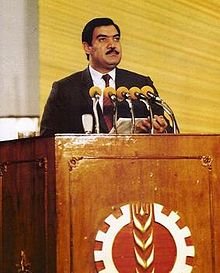
Initially trained as a doctor, Muhammad Najibullah left medical field for politics and became the president of Afghanistan from 1987 to 1992. He had beforehand held diverse vocations under the People's Democratic Party of Afghanistan (PDPA) and was a graduate of Kabul University. Amid his residency as pioneer of Afghanistan, the Soviets started their withdrawal, and from 1989 until 1992, his administration endeavored to settle the continuous common war without Soviet troops on the ground. While coordinate Soviet help finished with the withdrawal, the Soviet Union still bolstered Najibullah with monetary and military guide, while Pakistan and the United States proceeded with its help for the mujahideen. All through his residency, he attempted to fabricate bolster for his legislature by means of the National Reconciliation changes by removing from socialism for Afghan nationalism, nullifying the one-party state and giving non-communists a chance to join the administration .
After a fizzled endeavor to escape to India, Najibullah stayed in Kabul living in the United Nations base camp until 1996, when the Taliban development took Kabul. The Taliban shot and slaughtered Najibullah before hanging his body alongside his sibling's from a movement post on September 26, 1996.
There was across the board worldwide condemnation, especially from the Muslim world. The United Nations issued an announcement which denounced the execution of Najibullah and asserted that such a murder would additionally destabilize Afghanistan. The Taliban reacted by issuing capital punishments on Dostum, Massoud and Burhanuddin Rabbani. India, which had been supporting Najibullah, unequivocally denounced his open execution and started to help Massoud's United Front/Northern Alliance trying to contain the ascent of the Taliban.
2-Nikolai Ivanovich Bukharin:
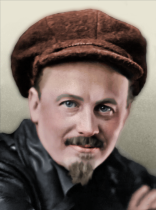
A leading and prominent member of post-Russian Revolution politburo and a senior Russian politician, Nikolai Bukharin started his political journey at Moscow University level when he was only sixteen. He did remarkable revolutionary work for more than thirty years. As a leading role of Bolshevik Party in 1920 reached the power heights in USSR. After the disappointment of the 1905 revolution, there was a noteworthy crackdown on the left and well-known developments by the tsarist state, prompting mass captures and executions that brought a noteworthy loss of individuals for the Bolshevik Party. Some way or another Bukharin figured out how to proceed with his political function as a manager for a trade union newspaper and instructing in a political school. In 1911, Bukharin was captured because of crafted by a twofold operator of the tsarist police - Roman Malinovski, the leader of the Bolshevik parliamentary delegation in the Duma. After his capture, Bukharin was persuaded that Malinovski was a tsarist specialist and, later in a state of banishment, attempted to persuade Lenin regarding this. Lenin declined to trust that a standout amongst the best Bolshevik specialists was really a twofold operator and this soured his relations with Bukharin. Things being what they are, Bukharin was right, and after the 1917 Revolution, Malinovski would be uncovered as a double-crosser and executed.
He was shot on March 15, 1938, as an adversary of the general population.
However that isn't the keep going word on Bukharin. The charges against him were so fraudulent, deceitful and freakish that they couldn't hold up under any legitimate investigation. Along these lines following Stalin's passing, there were endeavors by Bukharin's dowager to upset the decision and restore him and reestablish him to party participation. This was at long last accomplished in 1988 under Mikhail Gorbachev, when the Soviet government pronounced Bukharin guiltless and rehabilitated him to party enrollment after death.
1-Nikos Beloyannis:
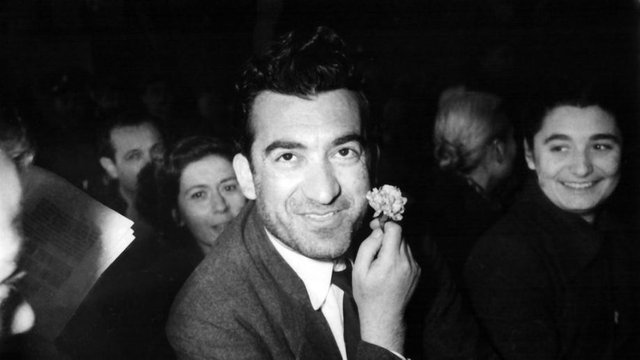
It was the sunrise of Sunday 30th March, 1952 when the bullets of firing squad pierced the heart of Beloyannis including three of his comrades and that news shocked everyone. The man with the carnation, the communist and the hero, Nikos Beloyannis was Greek leader and a leading character of Greek Communist Party. Nikos was elected as the member of exiled Communist Party of Greece (KKE) in 1950. He and his comrades had pursued an unwavering battle against German, British and US dominion. This was the reason behind why they captured and executed them. In this very plugged and dubious trials, Beloyannis battled with the bravery against his prosecutors.
Beloyannis ended up one of the immense heroes of the Greek protection, and an emblematic casualty of the tyrant after war foundation.